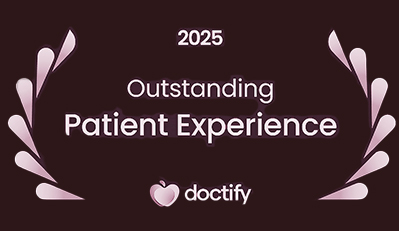
Is lens replacement surgery permanent?
If you’re thinking about lens replacement surgery, one of the first questions that may come to mind is:
"Is it permanent?"
The short answer is yes—lens replacement surgery offers a permanent solution to many common vision problems. But there are a few important details to understand about how long the results last, what to expect over time, and what could change later.
In this blog, we’ll break it all down for you.
What is lens replacement surgery?
Lens replacement surgery, also known as refractive lens exchange (RLE), involves removing your natural eye lens and replacing it with a clear artificial lens called an intraocular lens (IOL).
It’s the same type of procedure used in cataract surgery. But in this case, it’s done electively to improve your vision and reduce or eliminate the need for glasses—especially reading glasses or varifocals.
Is it really permanent?
Yes—the artificial lens stays in place for the rest of your life. It does not degrade or wear out. Once the natural lens is removed and replaced with an IOL, it doesn’t grow back, and cataracts can’t form.
So from a medical perspective, lens replacement is a one-time, permanent procedure.
Does the lens ever need replacing?
In most cases, no. The lens is designed to last a lifetime.
It’s very rare to need a lens exchange. However, a lens might be replaced if:
- The original lens wasn’t the best match for your vision needs
- There’s a shift in lens position
- You develop significant side effects like glare or halos that don’t settle
At Mitry Vision, we take time during your consultation to choose the right lens for your eyes and lifestyle—reducing the chance you’ll ever need to change it.
What if my vision changes later?
While the lens stays the same, the rest of the eye can still change.
You might experience changes related to:
- The retina or optic nerve (especially if you develop age-related eye conditions)
- Dry eyes or corneal health
- Other health conditions like diabetes or glaucoma
These won’t affect the lens itself, but they might influence your overall vision.
That’s why we encourage regular eye checks—even after successful lens replacement surgery.
What about posterior capsule opacification (PCO)?
In some cases, months or years after surgery, the capsule that holds the lens can become cloudy. This is called posterior capsule opacification, and it can make your vision appear blurry again.
It’s not the lens failing. It’s a natural membrane behind the lens that becomes hazy.
The good news? It’s easily treated with a quick, painless YAG laser procedure—no surgery, no downtime, and results are instant.
Can I get cataracts after lens replacement?
No. Because your natural lens—the part of the eye that develops cataracts—has been removed, you cannot get cataracts again.
In fact, this procedure is sometimes called preventative cataract surgery, as it eliminates the need for cataract surgery later in life.
How does this compare to laser eye surgery?
Laser eye surgery changes the shape of the cornea but leaves your natural lens in place. That means over time, as your lens ages, you might still need reading glasses—or even cataract surgery.
Lens replacement solves this issue from the root by replacing the ageing lens itself.
That’s why many people over 45 choose lens replacement over laser—it’s a longer-term fix that addresses both near and distance vision, and it prevents cataracts too.
Will I still need glasses?
Many people who have lens replacement surgery enjoy life without glasses, especially if they choose premium lenses like:
- Multifocal or trifocal lenses (for distance, intermediate, and near vision)
- Extended depth of focus (EDOF) lenses
- Toric lenses (to correct astigmatism)
Some people still choose to wear glasses occasionally—for very fine print or night driving—but many find they no longer need them for everyday tasks.
So… is lens replacement worth it?
If you’re over 45 and want to enjoy clearer vision without the hassle of reading glasses, bifocals, or varifocals—and avoid cataracts for good—lens replacement is a permanent, powerful solution.
Take our free self-test to find out if lens replacement is right for you.
Find out if you are suitable for vision correction
Not everyone is eligible for vision correction surgery.
Find out if you could benefit from this life changing surgery by taking the quick self-suitability quiz below:




